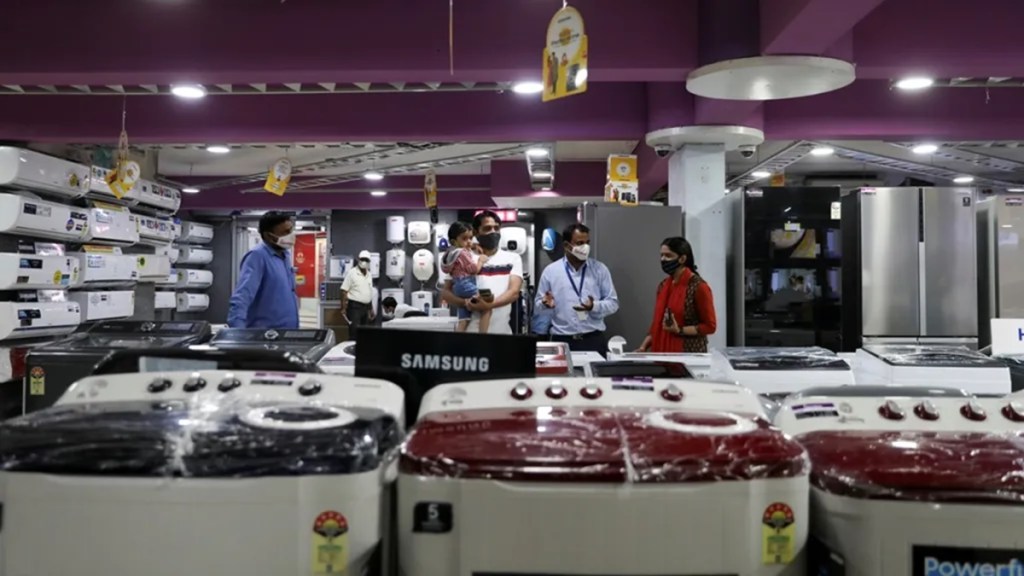The Reserve Bank of India‘s move to reduce repo rates by 50 basis points is expected to spur sales in rate-sensitive sectors such as residential properties, automobiles and consumer durables. The cumulative 100-bps rate cut in recent months is likely to bring down borrowing costs and nudge prospective buyers to take buying calls.
“The rate cut will serve as a positive catalyst for consumption and investment, particularly in automobiles, housing, and MSMEs,” said Anish Shah, group CEO & MD, Mahindra Group. Shah said the cut will also ease borrowing costs, improve liquidity and further strengthen the momentum behind the government’s infrastructure and manufacturing push.
The rate cut by the RBI is expected to prop up falling residential property sales and boost demand in affordable housing where buyers are most sensitive to interest rates.
Housing sales in the first quarter of 2025 in top seven cities fell by 28% year-on-year because of increasing prices and geopolitical headwinds, said a report by Anarock Property Consultants.
Niranjan Hiranandani, managing director, Hiranandani Group, said: “The resulting decline in home-loan rates will directly benefit homebuyers by improving affordability and cushioning their financial commitments.”
“A rate cut of 50 bps is a significant proactive step at a time when demand for residential real estate is seeing signs of slowing down across segments due to increased prices,” said Amit Bhagat, co-founder, CEO and MD, ASK Property Fund.
Venkatesh Gopalakrishnan, director group promoter’s office and MD, Shapoorji Pallonji Real Estate, said a lower repo rate directly results in reduced EMIs, thereby enhancing home loan affordability for potential homebuyers. “This move is especially encouraging for the real estate sector, particularly in the affordable and mid-income housing segments, where demand is highly sensitive to interest rate changes.”
Automobile companies and associations are equally enthused by rate cut and they believe it will boost demand.
“…this policy review is expected to strengthen liquidity and accelerate the transmission of lower interest rates to consumers, which will spur demand in the economy,” Venkatram Mamillapalle, country CEO & managing director, Renault India, said.
“Along with reduction in CRR, RBI move will boost liquidity, reduce customer monthly instalments, support consumption and further accelerate economic recovery,” said Tarun Garg, whole-time director and COO, Hyundai Motor India.
Shailesh Chandra, president, SIAM, and MD of Tata Passenger Vehicles & Tata Passenger Electric Mobility, said: “Such a move would have a positive impact on the auto sector since it would lead to increased accessibility to finance at reduced costs…”
Consumer durable makers see the RBI’s repo rate cut as well as CRR cut as a boost to consumption, coming at a time when there has been an urban slowdown. Most manufacturers see easy financing of durable products getting a boost. For perspective, almost 47-48% of consumer durable sales in India happens through easy financing schemes.
Avneet Singh Marwah, CEO, Super Plastronics, a Noida-based consumer durables maker, says: “The repo rate cut will boost consumption because with EMIs coming down in general, consumers will have more money in their hands to spend. I see interest rates on consumer durable loans coming down by about 25-30 basis points in the weeks ahead, which should aid consumption ahead of the festive season.”
NS Satish, president, Haier Appliances, said: “I see this as a bazooka because you have the fiscal stimulus measures which have kicked in from April onwards and now you have the central bank’s measures to ease lending rates and give credit growth a boost.”
Kamal Nandi, business head and executive vice-president, appliances business of Godrej Enterprises Group, said: “The rate cut by the RBI will provide EMI relief, especially to homebuyers with long-term loans. This will increase disposable income in the hands of consumers, which can boost appliance purchases.”
